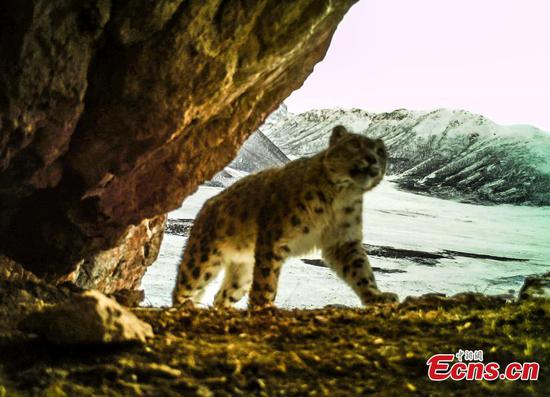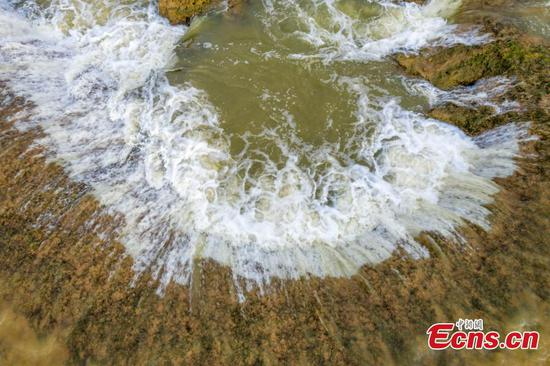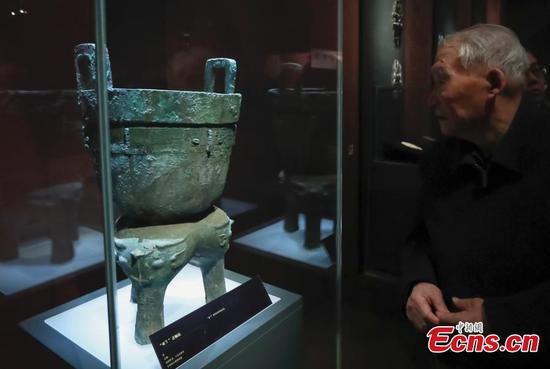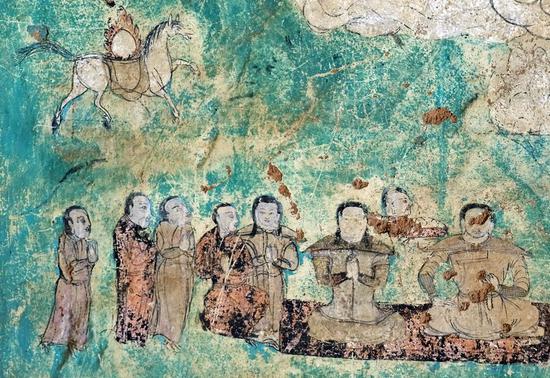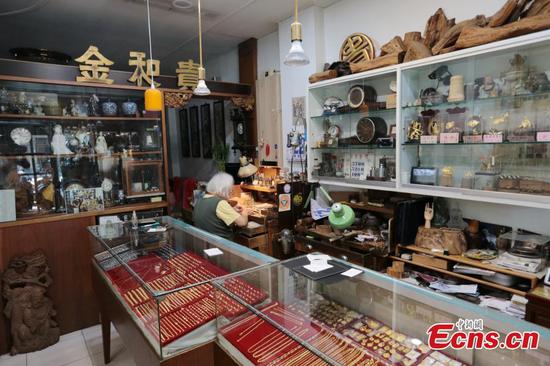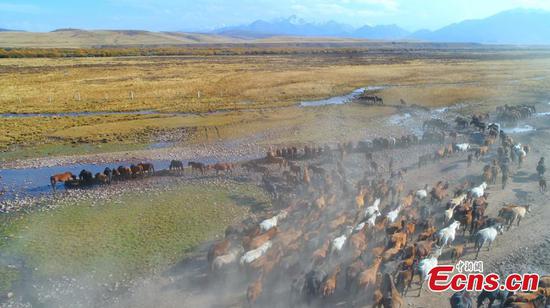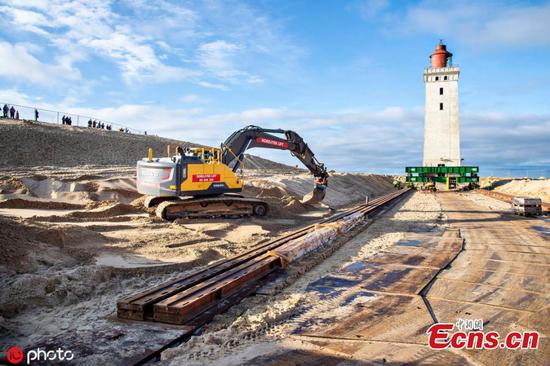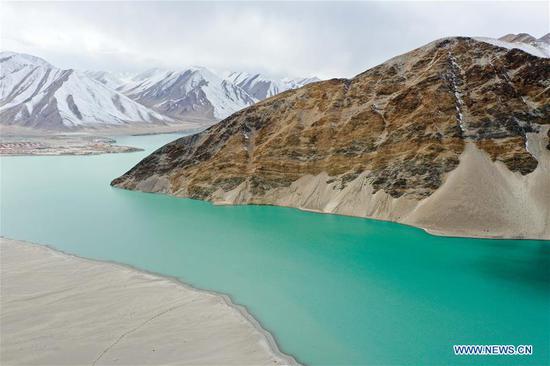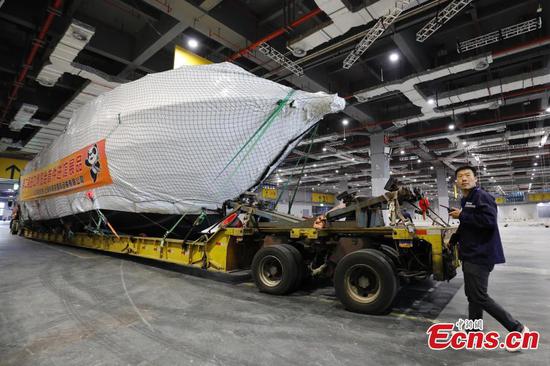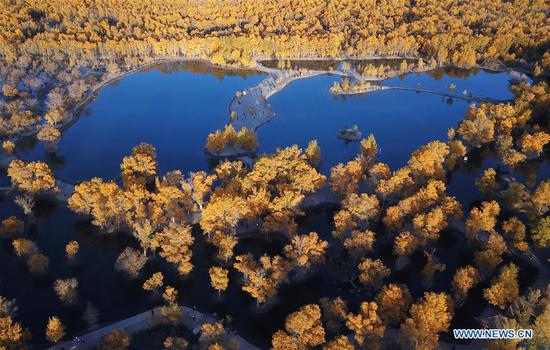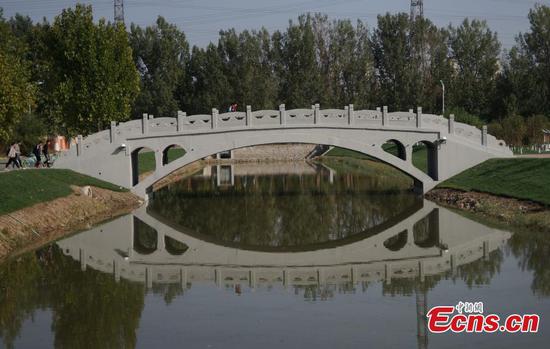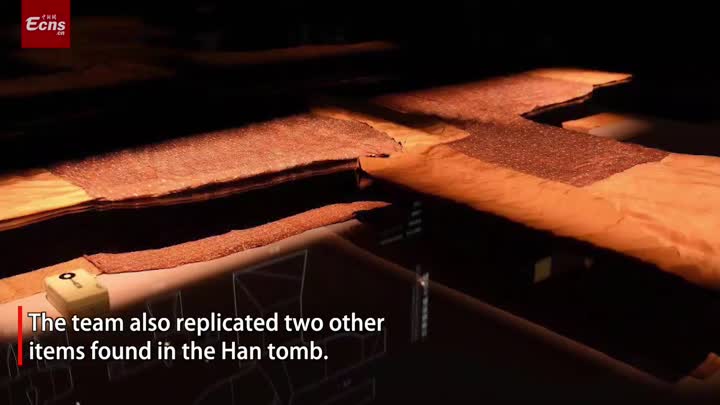Space debris attracts growing number of enthusiasts
Zhang Bo has found fewer than 10 meteorites in the 10 years he has been hunting for them.
The 37-year old, who worked for his family's jewelry business, became obsessed with meteorites in 2009 when he saw a meteor streaking across the night sky in Sanya, capital of Hainan province.
"I was biking around Hainan Island and had drunk with local fishermen before falling asleep in a tent on the beach. In the middle of the night, I woke to answer a call of nature and saw the fireball streaking across the sky before it suddenly plunged into the South China Sea."
The falling meteor lit up not only the sky, but Zhang's life. "It shocked me so deeply that I was unable to sleep that night. I would now be leading a totally different life if I hadn't witnessed the incident that night."
Zhang, who was 27 at the time, started to learn about meteorites, collecting material about them - much of it in English. His love of the subject helped him overcome the language barrier, and he also made friends with meteorite experts and people with a shared interest.
"Luck and sufficient equipment are important factors in searching for meteorites," he said.
"You should first determine the location of a falling meteorite and also have a wide variety of equipment, including a metal detector, an off-road vehicle, a drone and a satellite phone.
"Knowledge of meteorology, geology, astronomy and field survival are also essential," he said.
Zhang does not exaggerate the difficulties. In the 10 years of pursuing falling meteorites, he encountered many difficulties and life-threatening risks.
On a visit to Altay, Xinjiang Uygur autonomous region, he was almost buried by heavy snow.
The region has snow for nearly 10 months a year, with only July and August being the best months to search for meteorites. However, Zhang went to the area in November when he heard that such debris was falling there.
One morning, he found he could not open the door of the house he was renting from a local family. He had to climb out of the premises through a window before discovering that the entire house had been buried by snow.
Zhang had traveled to many places in search of meteorites, including Europe, Africa and North America. During one such overseas visit, someone put a gun to his head and asked for $3,000.
He was also thrown out of villages by locals in Nandan county, Guangxi Zhuang autonomous region, where he found two iron meteorites from the asteroid belt between Mars and Jupiter. The locals were suspicious of a total stranger making such a discovery.
As long ago as May 1516, many people saw a meteorite fell in Nandan, which was reported in a local chronicle titled Qingyuan Fuzhi. Meteorites have been recorded in the county since the 1960s.
Two found in Nandan in 2015 and last year impressed Zhang greatly, and he said they connect him with ancient history and the universe.
"It took millions of years for meteorites to form and reach Earth. They bring us information about the universe and help us to better understand it," he added.
This month, Mei Lin, a 30-year-old meteorite hunter, was one of many who rushed to Songyuan, Jilin province.
Early on Oct 11, a meteorite fell in the city, attracting many people. But as on many previous occasions, Mei was unable to locate a single piece.
"Frustration always comes with the adventures of looking for meteorites," he said. "The worst moment is that you hear that someone has found a meteorite ... while you have spent months in vain trying to locate one."
Mei, who lives in Guiyang, capital of Guizhou province, had traveled many times to remote deserts and areas with small populations to pursue meteorites.
"They will burn and explode when they pass through the atmosphere. Finding the meteorites depends on experience and hard work.
"We are used to sandstorms, an extremely dry environment and attacks by wild animals. Though most of the meteorites I have found do not fetch a high price when sold, I feel happy when I hold them in the palm of my hand."
He said many hunters have "informers" in remote areas, who provide them with information about where to find meteorites.
"The informers can also help the hunters deal with problems in local areas," Mei said. "Sometimes entering a village to search for meteorites requires the approval of local people, and the informers can help you get this quickly."
Xu Weibiao, director of the astrochemistry and planetary science laboratory at Purple Mountain Observatory in Nanjing, Jiangsu province, and one of China's top meteorite experts, said it takes just 1 or 2 yuan (14 and 28 cents) to buy a gram of the cheapest meteorites.
"Chondrite meteorites are the most common types falling to Earth," he said. "These meteorites contain little round structures. The prices fetched by meteorites mostly relate to their rarity. Therefore, chondrite meteorites, which often come from other planets, are not expensive.
"Sometimes, rock fragments from the moon, Mars and comets will fall to Earth, and these are expensive to buy due to the limited quantity and high scientific research value."
Many years ago, when Xu and his colleagues wanted to buy some meteorites from Mars for research purposes, the price was $10,000 a gram.
"It still costs several hundred US dollars to buy 1 gram of a Mars meteorite today, although more of them have been found," he said.
"Meteorites from Mars are extremely precious for research of that planet. Although astronauts have landed on the moon and taken back rocks to Earth, meteorites from the moon also provide opportunities for us to better understand the satellite other than the astronauts' landing sites."
Xu said many people in China are now interested in collecting meteorites and ask him to identify them when he gives science lectures across the country.
"Most of those that have been identified are purely rocks. Many people have also asked Purple Mountain Observatory to identify meteorites. We offered help at first, but now we no longer identify meteorites for the public due to the huge demand.
"Unique traces can be found in meteorites. These include fusion crusts with many sunken holes and surfaces with special flow lines. Some of their external features can be faked easily."
Such fakes have been appearing on the market, he said, adding that the best way to identify meteorites is to take samples and analyze them in laboratories.
Public interest in meteorites has also promoted the development of the market. Collections and trade in meteorites began in China about 30 years ago, with many owners at the time being farmers who mistook meteorites for iron-rich sedimentary rocks.
With development of the internet, many people have started to invest in meteorites. Xu has met some who wanted to make a fortune by trading in them but were deceived by fakes.
"Some people resold these meteorites even after learning that they were fakes. It takes professional knowledge to avoid being deceived, so science lectures about meteorites are important. People should be aware that the meteorites are not as expensive as some sellers state on the internet."
Zhang, the meteorite hunter with 10 years' experience, said: "It's difficult to regulate and monitor the market. Like many industries, it faces challenges from fakes."
He added that although many people in China collect meteorites, most of them want to make money by selling them at high prices. "There are fewer than 10 real collectors in the country who treat the collections seriously," he added.
Xu Jun, secretary-general of Nanjing Astronomical Fan Club, said many Chinese enthusiasts buy meteorites from each other and from domestic and foreign platforms, but it is difficult for amateurs to identify them.
"They will learn fast if they have access to real meteorites. Members of the club can learn from professionals who majored in meteorites," Xu said. "They can also consult experts from Purple Mountain Observatory because the club has a close relationship with it.
Xu, from the observatory, said, "With professional knowledge about meteorites, people who are not greedy cannot be deceived."
Zhang, who has amassed various types of meteorites from six continents, has established a workshop to research and identify them. With seven staff members, it works with museums and schools to introduce related knowledge.
"I have spent most of my life pursuing meteorites," Zhang said. "But these years have provided just a glimpse of the timeless universe. It is the mystery of the universe that gives charm to meteorites and interests many people the most."
Guo Jun contributed to this story.














